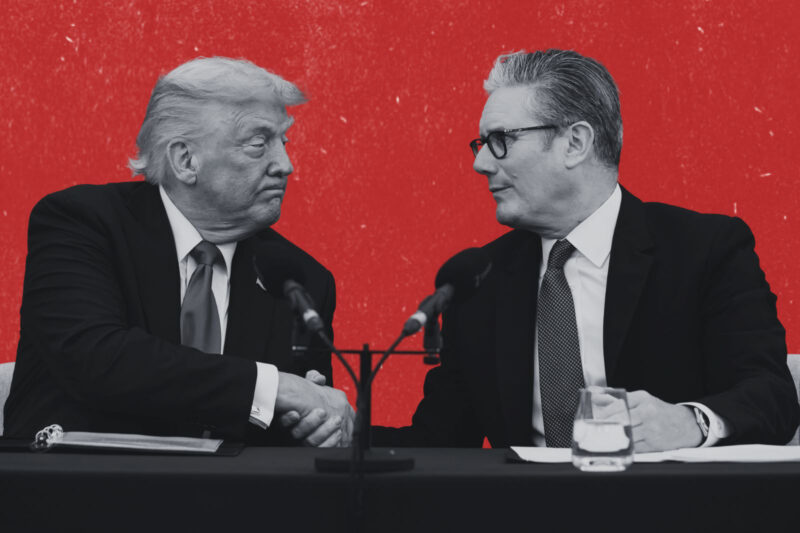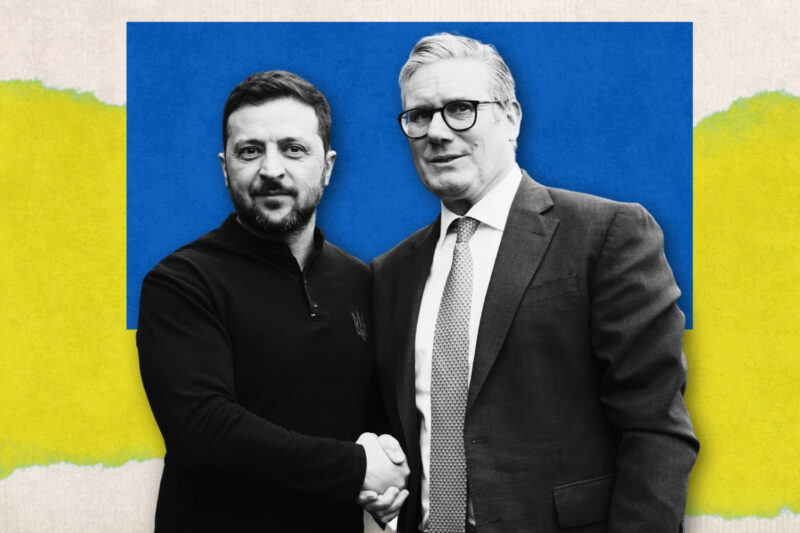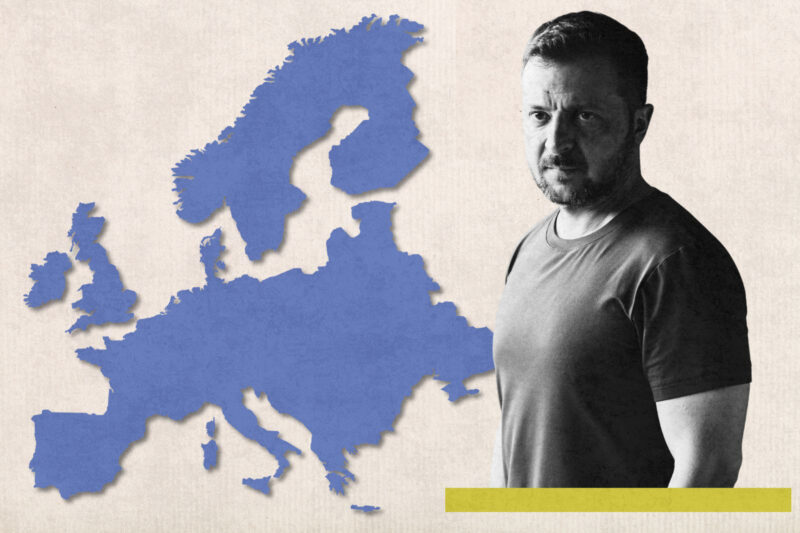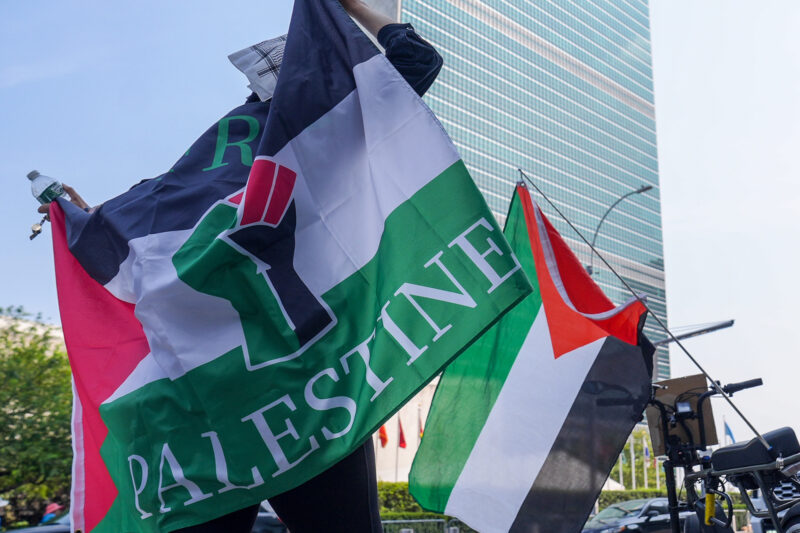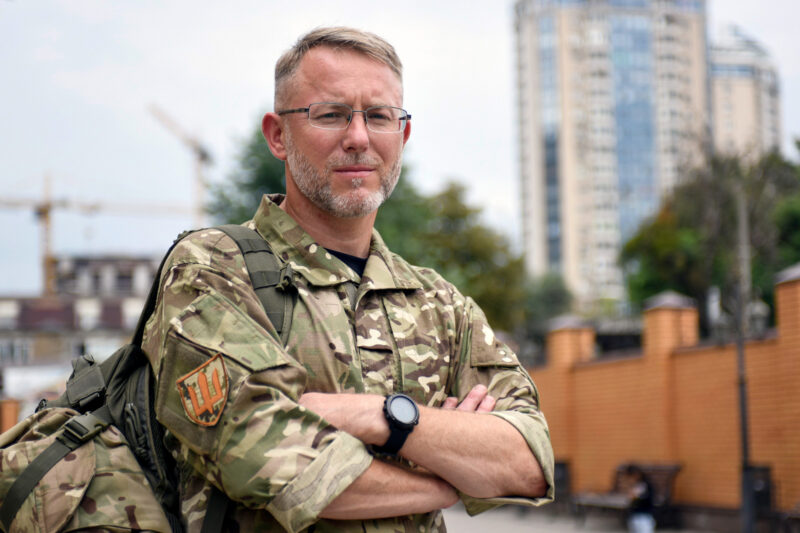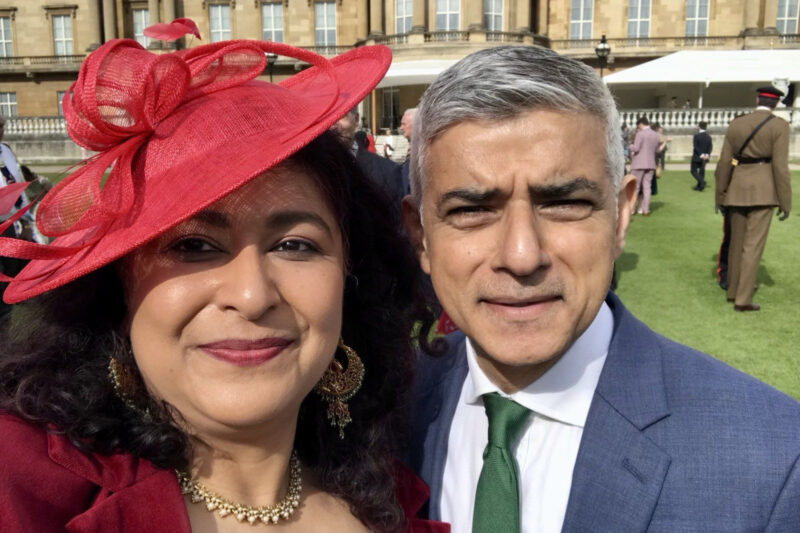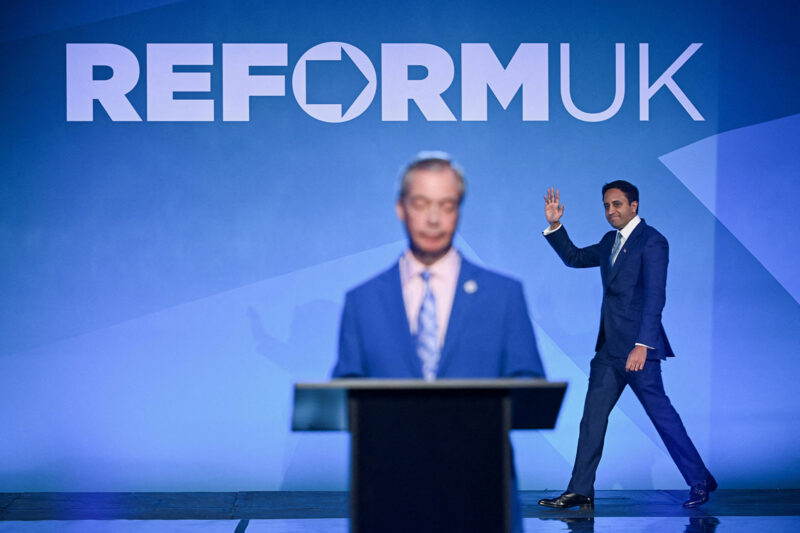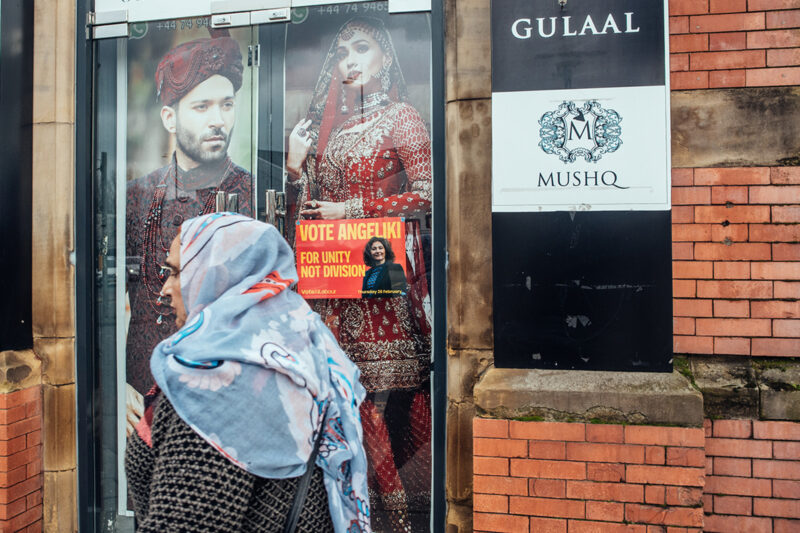Crimean Tatar leader: ‘My people and country need defending’
Nariman Dzhelyal, a Crimean Tatar leader recently released in a prisoner swap, describes horrific conditions for Muslim civilians detained in Russia’s jails
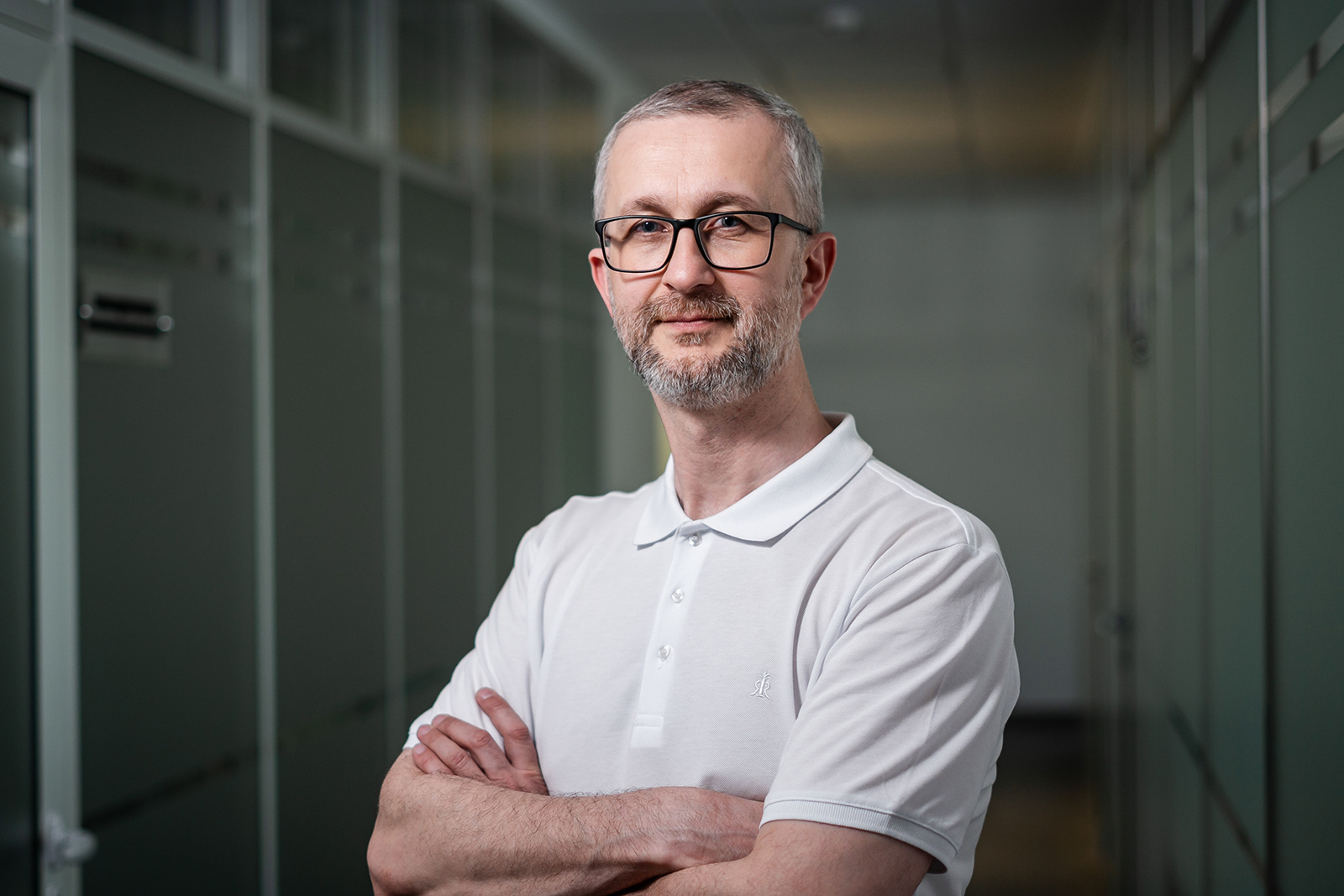
It was a moment that many in Ukraine, and especially Crimea, had hoped to see for almost three years: on 28 June, with the help of the Vatican, 10 Ukrainian civilians were released from captivity in Russia and its ally, Belarus. Among them was Nariman Dzhelyal, the Crimean Tatar leader and outspoken opponent of Russia’s 2014 annexation of Crimea.
The group’s release was a significant breakthrough for Ukrainian authorities struggling to free more than 1,700 civilians currently held by Russia. As civilians do not fall under the rules of war for military prisoners, Ukraine considers them hostages. The last time it managed to return any arrested in Crimea was in 2019. Previously, two Crimean Tatar leaders were freed in an exchange brokered by Turkey in 2017. Dzhelyal has now joined them in exile in Kyiv. Russian authorities have barred them all from returning to Crimea, warning that they may be re-arrested if they try.
Of the 208 people detained on political charges in Crimea since its annexation, 125 are Crimean Tatar — a Muslim people indigenous to the peninsula. In 2014, when Crimean Tatars opposed Russia’s annexation and occupation of Crimea, Moscow imprisoned or exiled most of their leaders and declared the community’s governing body, the Mejlis, an extremist organisation. “There is a taboo about Crimean Tatars,” Dzhelyal told Hyphen shortly after his release.
Dzhelyal, 44, a former journalist, joined the Mejlis in 2013 and became its deputy leader. He was arrested in 2021, as he returned home from the Crimea Platform — a major diplomatic gathering in Kyiv intended to bring Crimea back to the international agenda — and charged, together with activist brothers Asan and Aziz Akhtemov, with the alleged sabotage of a gas pipeline. Based on a confession the men say was extracted during torture, the three were sentenced to 17, 15 and 13 years respectively. Torture methods used in Russian detention have been described by hundreds of Ukrainian prisoners of war and civilian detainees. In June, the European Court of Human Rights found Russia guilty of numerous violations in Crimea, including torture and illegal detention.
When contacted by Hyphen via email, the Russian Crimean prosecutor’s office did not respond to the allegations of torture.
During his three years in detention, Dzhelyal met more than 30 Ukrainian political prisoners: other Crimean Tatars, Jehovah’s Witnesses (Russia outlawed the religious group in 2017) and, after the full-scale invasion of Ukraine in 2022, citizens from newly occupied areas of east and south Ukraine. He also met many other Muslims, mostly from the Caucasus and central Asian states, most of whom were held on terrorism charges. There are no official figures for the number of Muslim prisoners currently held in Russia’s jails but Dzhelyal says that from his own experience, it appears that the sheer number is forcing the penal system to adapt. He was allowed to pray and to observe Ramadan.
His worst experience was in SIZO (pre-trial prison) 2, opened in Crimea just before the full-scale invasion and used to detain Ukrainian prisoners from newly occupied territories. Dzhelyal spent about six months here, before he was transferred 5,000km away to Minusinsk in Siberia. “That was the place where they really beat me,” he told Hyphen, adding that inmates were allowed to sit only on a narrow bench during the day, which in reality meant the only option was to stand or pace around the cell for hours. In the corridors they were forced to squat or to run doubled over.
“But when you talk to any prisoner, you have to understand that we are already deformed, and what is completely abnormal to a free person is normal to us,” he said, adding wryly: “If they didn’t beat you or abuse you, then that’s good. And to the fact that there is no normal medical care available and so on, you just shrug and say ‘whatever’.”
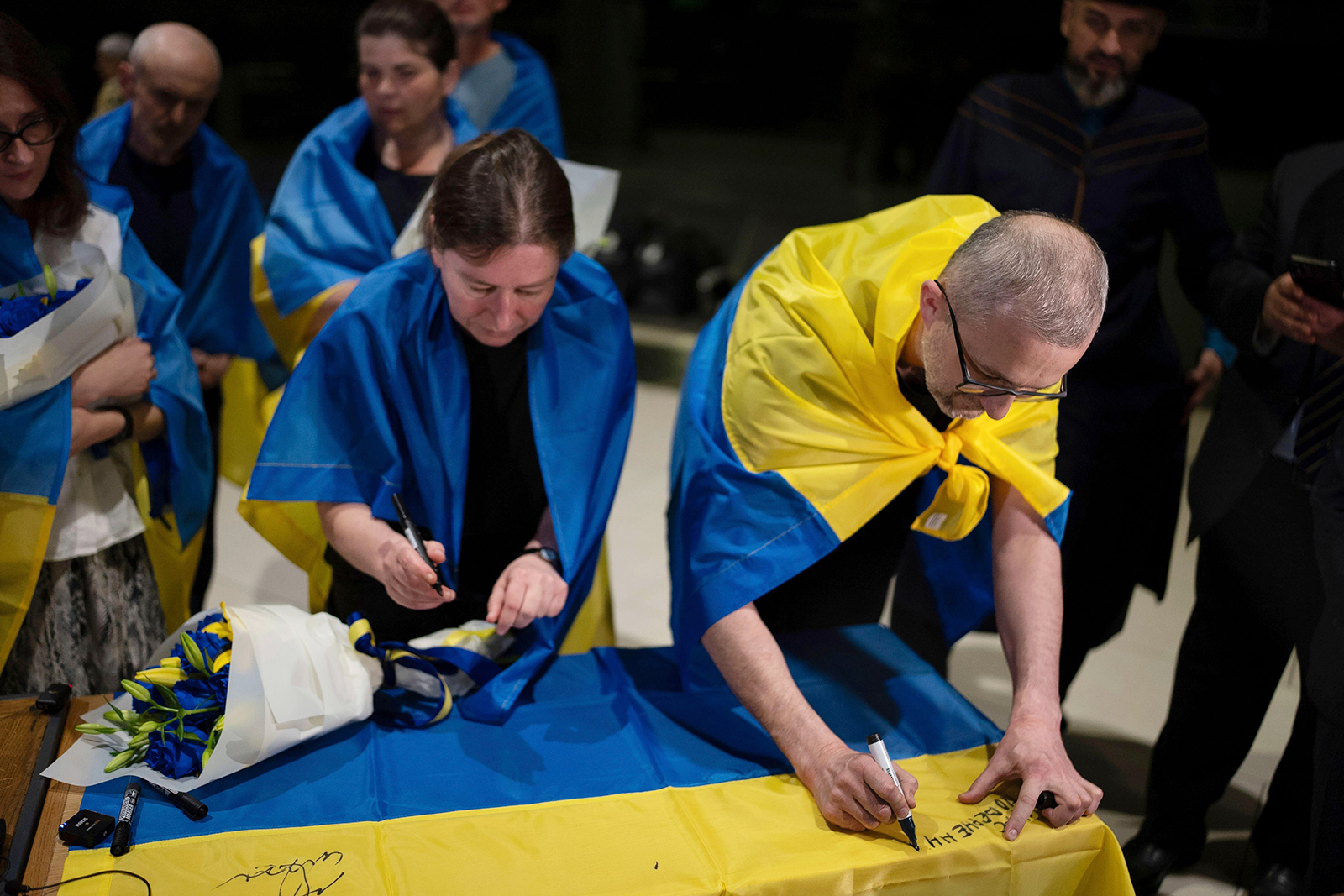
Russia’s prisons are notoriously brutal. Opposition leader Alexei Navalny died in a penal institution in the Russian Arctic Circle earlier this year. Two Crimean political prisoners, Dzhemil Gafarov and Kostiantyn Shyring (whom Dzhelyal briefly met when behind bars), also died in prisons in south-west Russia after they were denied medical care for pre-existing health conditions. Others such as Tofik Abdulgaziev, another Crimean Tatar activist arrested in Crimea in 2019, are at high risk. “With this sentence you have not just taken his freedom, you have, to all intents, killed him,” said Dzhelyal of Abdulgaziev’s sentencing, during which the Russian court ignored doctors’ reports that on health grounds he should not be imprisoned.
Dzhelyal had heard rumours that Ukraine and Russia were preparing a prisoner swap but found out he would be freed only when the prison administration told him to collect his things. During the journey through Moscow and to the Belarus-Ukraine border, he hoped that Asan and Aziz Akhtemov, sentenced with him, were free too.
“My eyes were bound and I couldn’t see what was around me, and I really wanted and thought that they were nearby,” he said. “I knew there were people with me after Moscow, but by their voices I realised it wasn’t Asan and Aziz.”
Ukraine had asked for the Akhtemovs and two others from Crimea to be included in the exchange, but Russia refused. Among the others released were five civilians detained in Belarus and two Greek-Catholic clerics seized in occupied south Ukraine. In return, Ukraine released two Russian Orthodox clerics, among others.
Dzhelyal is now adapting to life in a country changed since his arrest by full-scale war. In prison, he followed the Russian invasion through the distorting lens of state-controlled media.“You could get a grain of fact from it, but sometimes I got really alarmed because this lying propaganda works so hard to shape your opinion that, whether or not you believe it, you’re forced to start wondering: is everything really as bad for Ukraine as they say?
“When I got out, for the first few days I just put on Ukrainian news and watched it and calmed myself down. Ukraine is holding out. Yes, it’s hard, there are many problems, but it is holding out and world support is quite consolidated.”
The news from home is less encouraging. Russia has turned Crimea into a major military base with 32,000 troops stationed there, according to the Ukrainian Defence Ministry. Mass surveillance and newly introduced charges of extremism, terrorism, discrediting the Russian army or demonstrating symbols associated with Ukraine have resulted in more than 1,500 prosecutions, with many of the accused forced to make humiliating public “confessions”.
In this atmosphere, no one in Crimea has taken Dzhelyal’s place in public opposition. An active underground movement shares small personal acts of protest on social media and tracks Russian troop movements. Dzhelyal does not blame people for not speaking up. “I went down that road, and you know what happened to me,” he said.
In Kyiv, Dzhelyal plans to resume his post with the Mejlis to raise awareness of the situation in Crimea and the thousands of Ukrainian prisoners still held by Russia. Muslim Crimean Tatars hold several high-profile positions in the Ukrainian government, including the defence minister and the permanent representative of the President of Ukraine in Crimea, but working in exile, the Mejlis is short on resources.
Dzhelyal’s wife and four children came from Crimea to Kyiv soon after his release, and he took a week’s break to be with them. “It’s very little, after three years apart,” he said. “I had thought that it would be nice to go away from everything and just be with my family. But I have a very strong sense of responsibility towards the guys I know personally, my whole people, and towards my country that needs defending.”
 Newsletter
Newsletter

